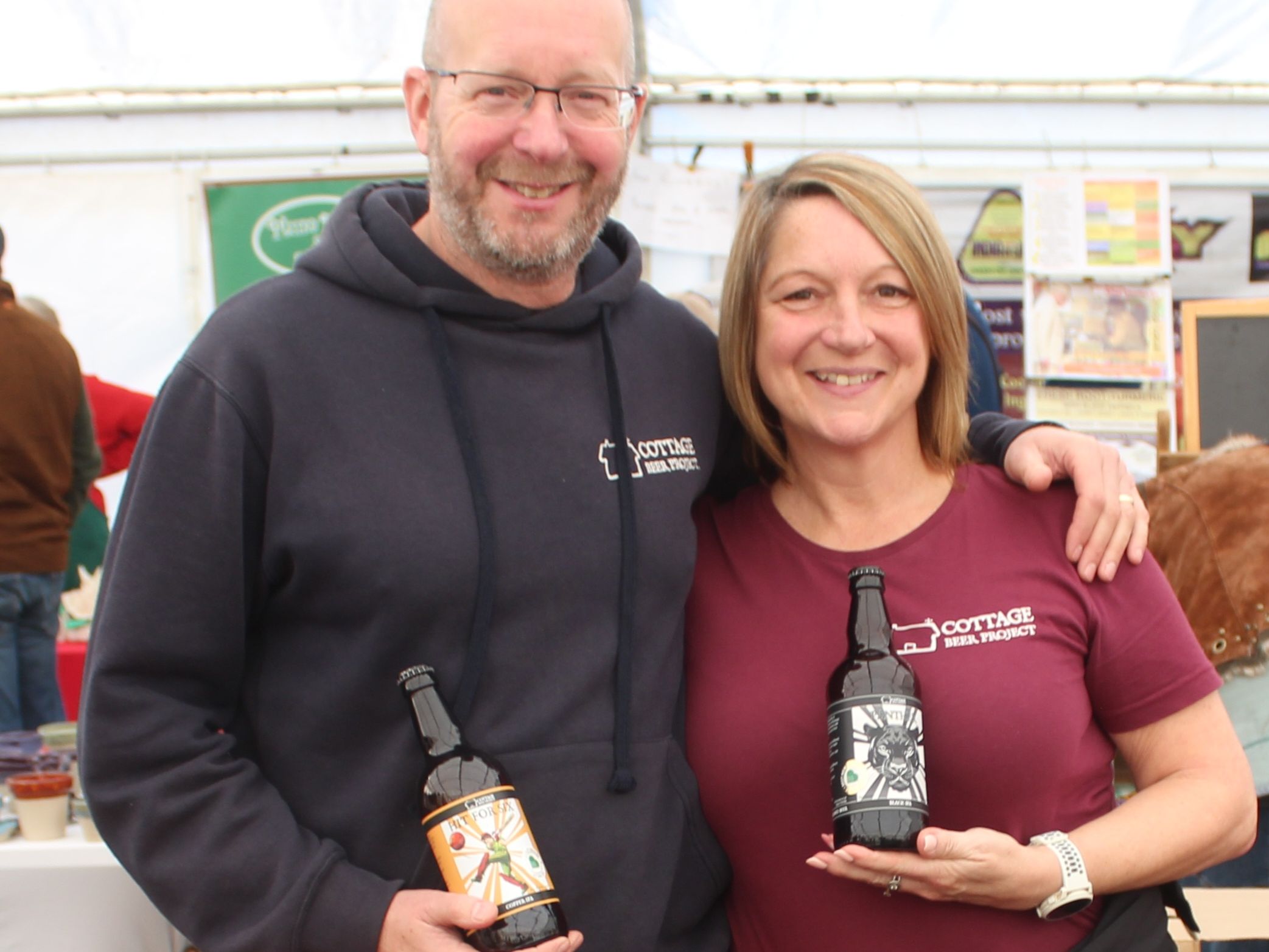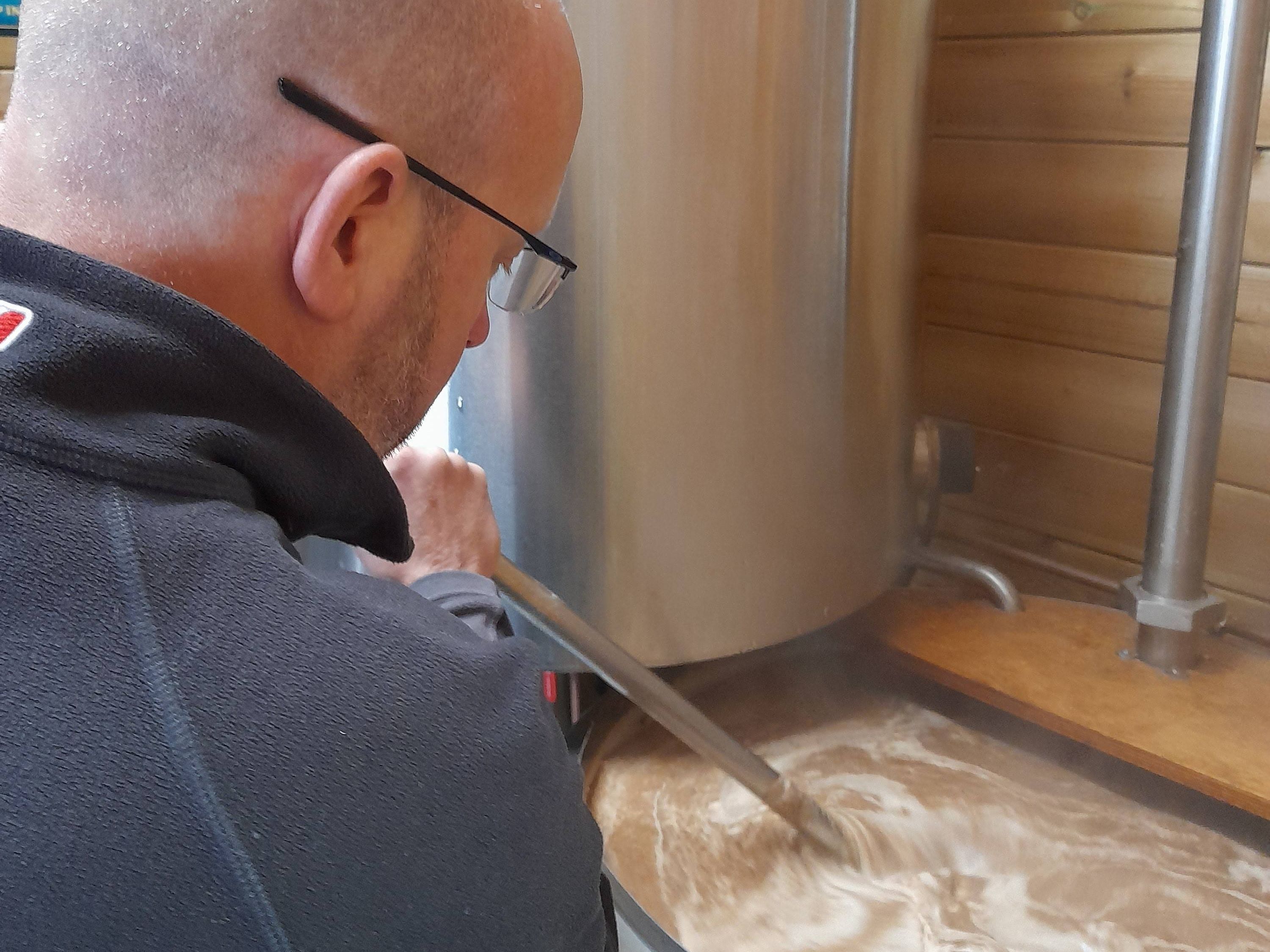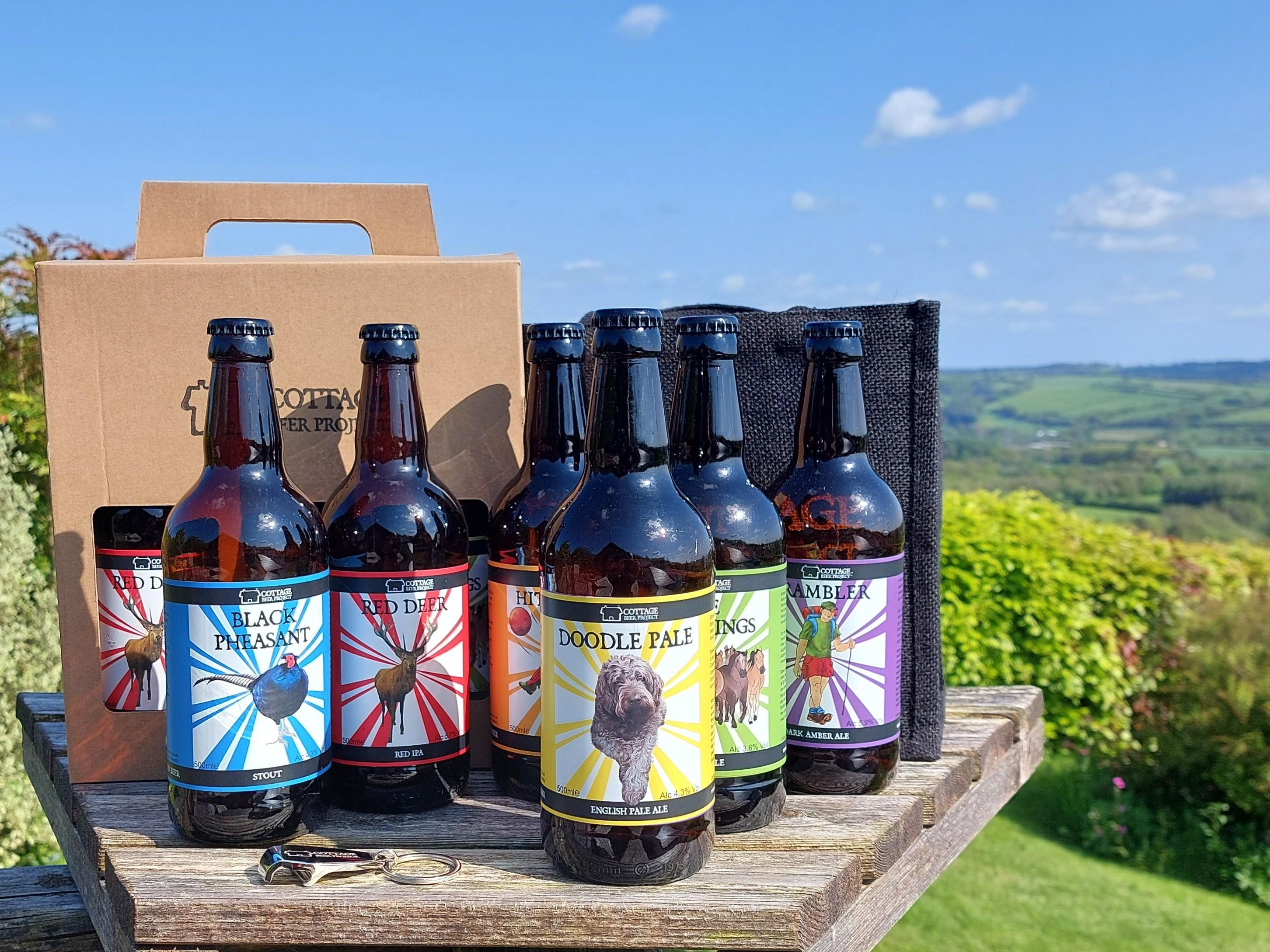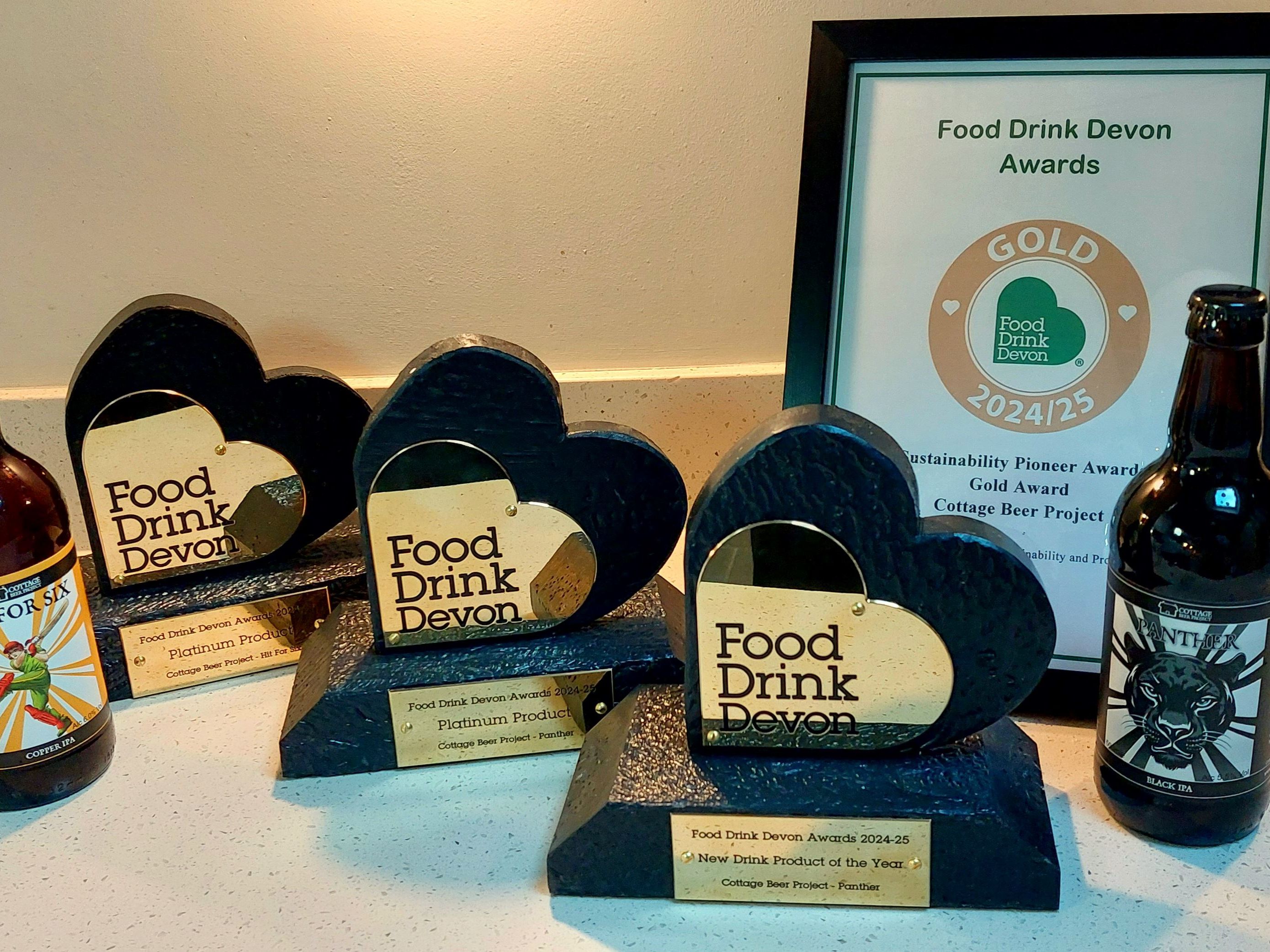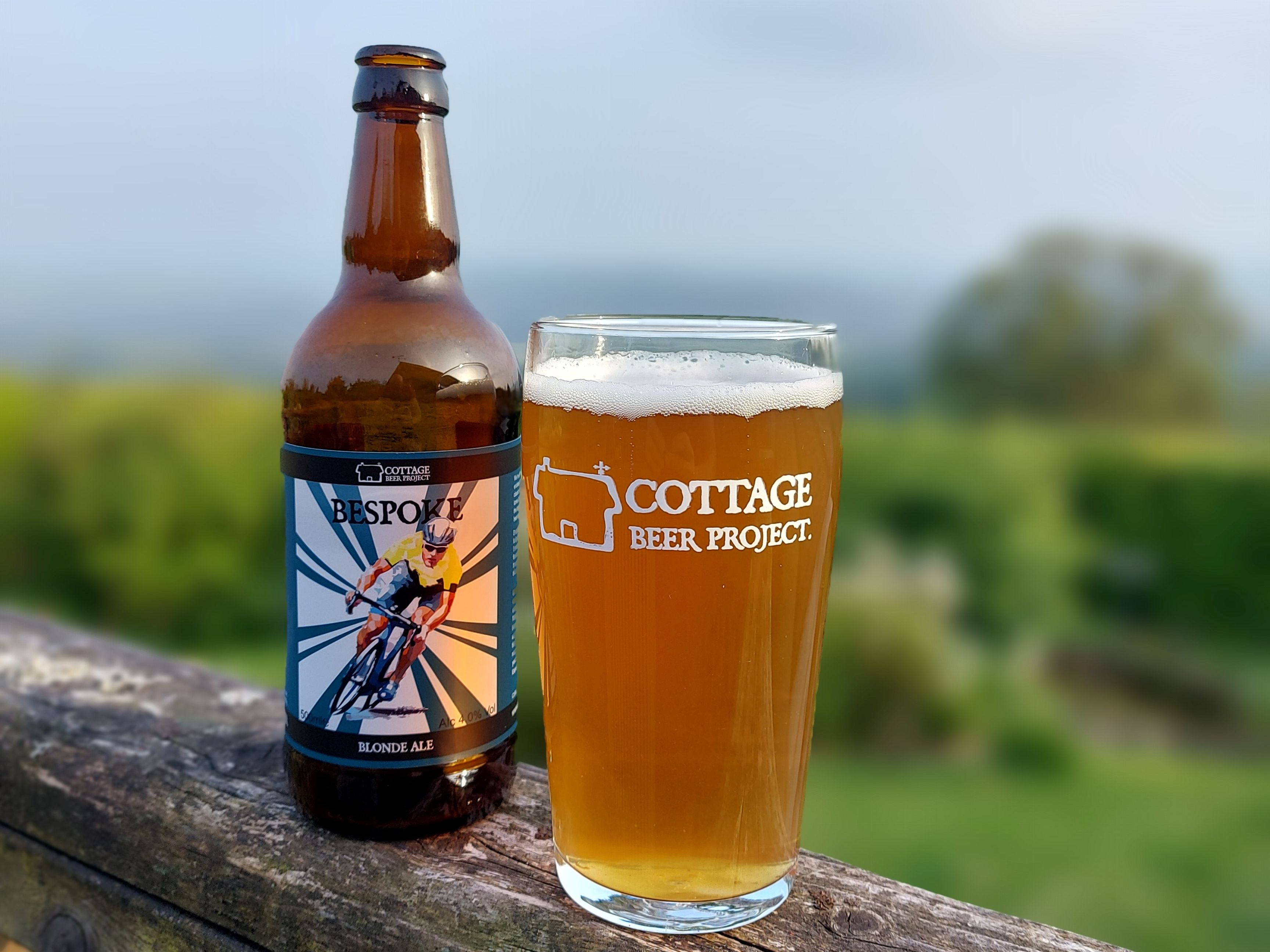Sustainability Spotlight | Cottage Beer Project
Find out about Cottage Beer Project, a nano-brewery founded in north-east Devon in 2020 by Daniel Clayton. Dan produces award-winning bottle conditioned beers and has established a small, artisan business with a firm focus on sustainability.
Dan manages the business and brews the beers, which he sells online, at food festivals and farmers' markets around the region with the help of his wife and fellow Director, Claire.
Cottage Beer Project produces a core range of beers and limited edition seasonal specials on 200 litre equipment. We asked Dan to tell us more about his brewery business and its sustainability ethos.
What have you done to make your business more sustainable?
Our most recent initiative has been to complete the journey to be entirely single-use and plastic free within our own business process. It took several months to reach the goal, but we finally achieved it in 2024. As a result, we also officially became the first Exmoor Plastic Free Business to reach Silver status.
We always set out to lessen our impact on the environment when establishing the business in 2020, and the most difficult step was to replace the Polypropylene bottle label we used - the final piece in our plastic free jigsaw.
It was vital to us to reach this point, so we were extremely keen. Removing a fossil-based plastic has environmental benefits both in removing the use of oil from our product label and plastic. It entailed regular sourcing activity, trials of products and research to ensure we were not sourcing a ‘greenwashed’ label.
Several potential label alternatives were sourced. We assessed a Bagasse label, made from wood pulp. It looked great, but in reality, it was creating a plastic, non-recyclable label. A cane sugar label appeared ideal, and worked in trials, but research found it was sourced in South America from a location where 90% of the Atlantic Rainforest has been decimated to grow sugar cane - not a great story.
Ocean going plastic was dubious. Manufacturers of a cellulose label wouldn't reveal the origination of the product. We persevered and have discovered a material that is recyclable and made primarily from marble quarry waste. The adhesive is also biodegradable and compostable, which was another key requirement. This has been introduced and is now used across our range of bottled beers.
We were determined to ensure we could rid our business of single-use plastics entirely, and we have succeeded!
We’ve also been able to boost our sustainability by sourcing most of our product from suppliers in the south-west. This not only helps the local economy but reduces our carbon footprint.
All our cardboard is recycled and we use paper tape on our box packaging. The spent grains from the brewing process are collected by a local farmer who feeds them to his cattle. We even have organic workwear.
Our business - albeit very small - will continue to develop and grow sustainably. Quantity of growth is not as important to us as the quality of that growth. Our belief that our growth should not cause ecological harm is fundamental to our sustainability journey.
Some of this sustainable activity, such as our determination to be single-use plastic free, costs us as a business - for example we donate to CareMoor for Exmoor annually from sales of one of the beers (The Gatherings), but we hope that as well as supporting the National Park, our efforts will appeal to people of a simalar mindset to us.
What would you like to change in the future to improve your sustainability credentials further?
We’d love to collaborate and partner with other sustainable businesses, and we're always open to discussions so do get in touch!
It would be great to be able to source from suppliers that have made the effort to eliminate plastics from their processes - or at least those plastics that impact us directly. For example pallets of bottles are collected wrapped in plastic. The need to secure the bottles is understandable, but there are developments to use recycled plastics for this purpose and we aim to encourage our suppliers in this direction.
There are already moves by certain ingredient suppliers to move away from plastic tape on their shipping boxes. Though there is more work to be done here, we will focus our sourcing towards these suppliers.
Our aim is to achieve Gold standard within Exmoor Plastic Free during 2025 and the process will engage us with a wider community of likeminded people, we'll share our progress, and get involved in local initiatives to increase awareness.
What tips do you have for other businesses that would like to become more sustainable?
Reach out to other sustainable businesses - and us as we’d love to collaborate.
Discuss ideas around what each of you believes could be achieved and start with those most realistic.
Picking the lowest hanging opportunities is always a good start, as some practices will take some time to come to fruition, so some sustainable steps are a move in the right direction.
Shout about your efforts! It really does make a difference to some people to see that you have sustainability at the core of your values. We’ve made a number of sales since we formed as a business where people love our stance on this.
Continually look for more sustainable practices in everything you do as a business. It’s not just good business practice; it’s the right thing to do.
